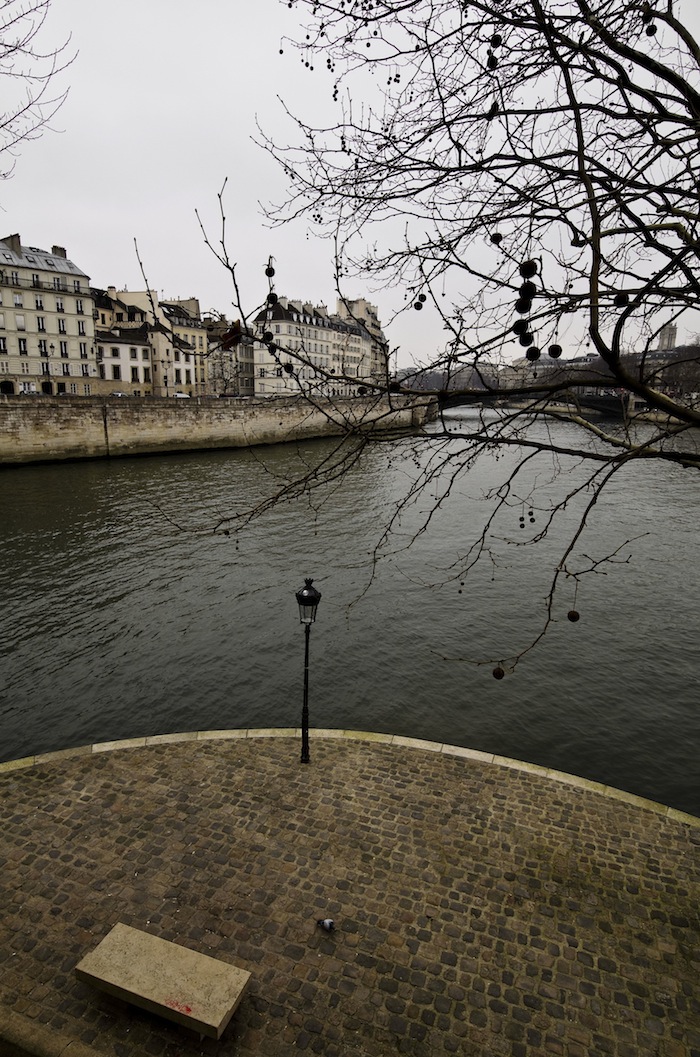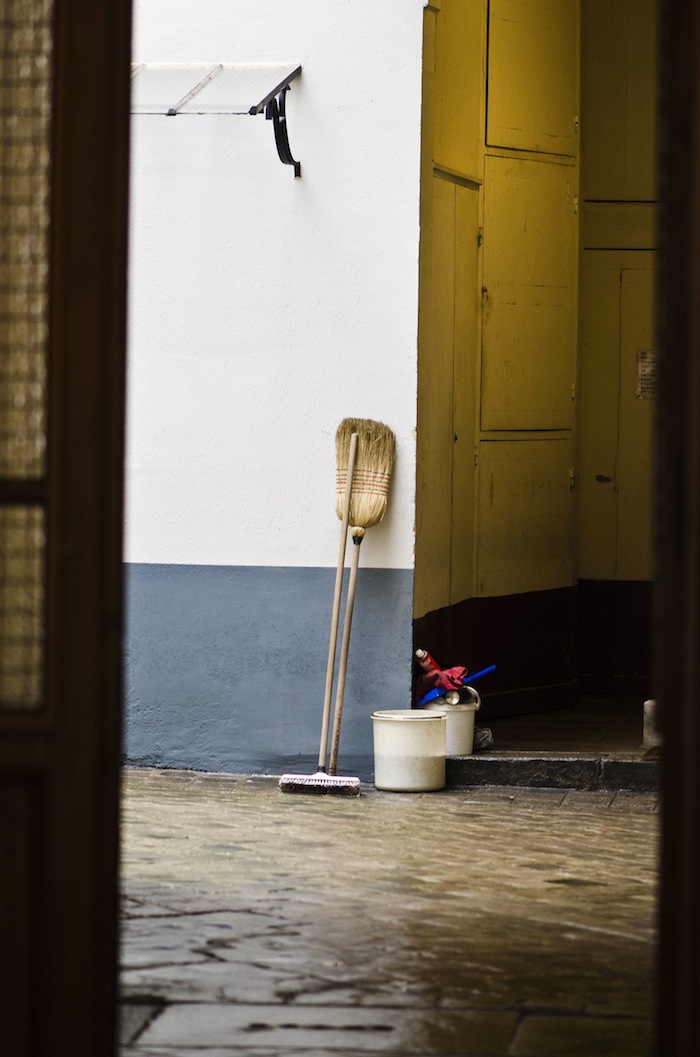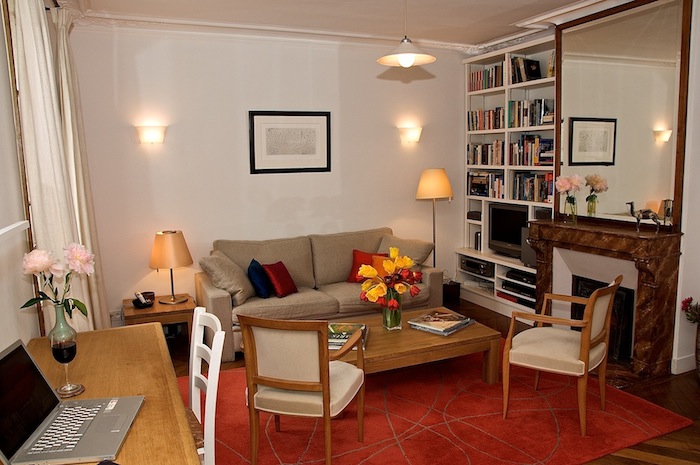Flashback: April 2009
We board the Venice to Paris overnight train. Two narrow bunks, a closet and a sink. Legs entwined on the lower bunk, we eat our tuna wraps. Halfway through, there’s only lettuce and air.
We keep having this experience in Italy—lying sandwiches, crooked hotelkeepers. We turn in early, R. below, I above. (Bull below bird.)
At 6 a.m., the porter knocks with a tray of cappuccino and croissants. We throw on our clothes and pack. Line up for a cab.
Paris in the morning, hands clasped in the back seat, eyes eagerly scanning for the filagree of chestnut trees, the first glimpse of the Seine. Notre Dame. Quai de la Tournelle. Our street, our neighborhood café.

There is Hector at the counter, a year older, but young. When, two years ago, we admired an old photo on the wall, a turn of the century view of our street, he had it enlarged as a gift. It is framed now in our flat.
R. signs his book of poems to him. Hector treats us to cafés crèmes. We chat and wait for the tenants to leave.
Midmorning, we pass through the great green doors. There she is, Madame T, our Portuguese gardienne—Hestia, keeper of the household flame.

Dignified, in no rush, she tells us about the trouble with our neighbor. One of the tenants who rented our apartment had children who cried all night. (Half a year ago, as I remember.) And seven Israeli-American women came for the weekend.
“Seven?”
“Yes, seven.” She counts them on her fingers. “They yelled down to each other in the courtyard when they couldn’t figure out how to open the door. The one who spoke French complained that the elevator was too small.” Madame T. raises an eyebrow.
Up in the small elevator with our heavy bags. We wander the apartment in a joyful daze. Let’s go lay in supplies.
We roll our shopping cart up the street to the supermarket, Champion. Strawberries, carrots, zucchini—little photos of vegetables and fruit above the scales. Weigh each. Out comes a sticky receipt. You twist it around the bag. We look for Poilâne bread with raisins. It’s too good—they’re always out.
So many possible kinds of milk: we read the labels until we find lait entier1. Beautiful jars of Bonne Maman jam. What kind? Fig! And Brie cheese. Long and wrinkled concombres2 wrapped in cellophane. Pommes Granny3. Hefty lemons. Joker brand jus d’orange4. Tuna pasta, freshly made today.
First day in Paris, I feel it again: I want to live here, want to find a way. The double whammy of happiness and the quickened desire to write; the aesthetic sense heightened. I want to explore the streets! Learn the history of Paris! A cornucopia of inspiration.
Later I read in Sophie Barron’s “Le 5e Arrondissement”:
Liquid chocolate made its first appearance in 1668 at the Restaurant de la Tour d’Argent.
Right at the end of our street.
Here is where la fourchette—the fork—was first used. And in 1685, the first cup of café.
In spite of little sleep on the train, bumping over the Alps; in spite of being exhausted after the extraverted, action-oriented ten-day cruise (no inward time to read, write and muse—not my natural rhythm), I feel completely awake. This city’s rhythm suits me. It’s Aphrodite’s rhythm, the rhythm of beauty and love. Time to sit and talk with friends. Time to observe the world.
We head up Boulevard St. Germain to buy two bunches of tulips, one red, the other orange flames. The florist adds three pink and white roses, and asks how short we’d like them cut.
A florist has never offered to do this for me, I tell her.
"I love flowers," she says, "and I love my clients."
The spirit of place—its power and persistence! Aphrodite and Dionysus, the ruling gods here.
We knock on the gardienne’s door. She opens with that sly earthy look.
Which bouquet would you prefer?
"Mais non!" she smiles, and picks the flames.
--April 22, 2009 - Paris

[1] whole milk
2 cucumbers
3 Granny Smith apples
4 orange juice